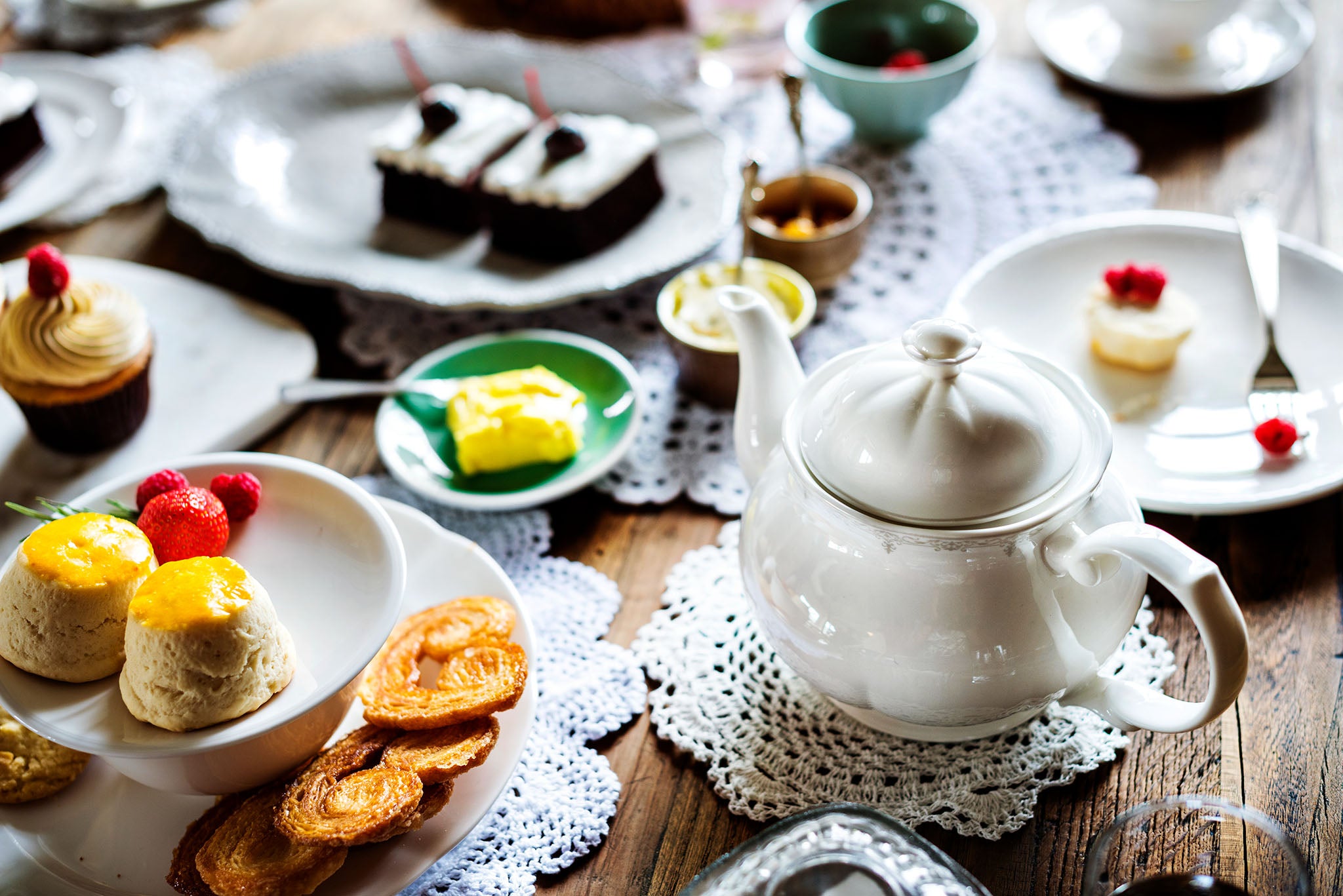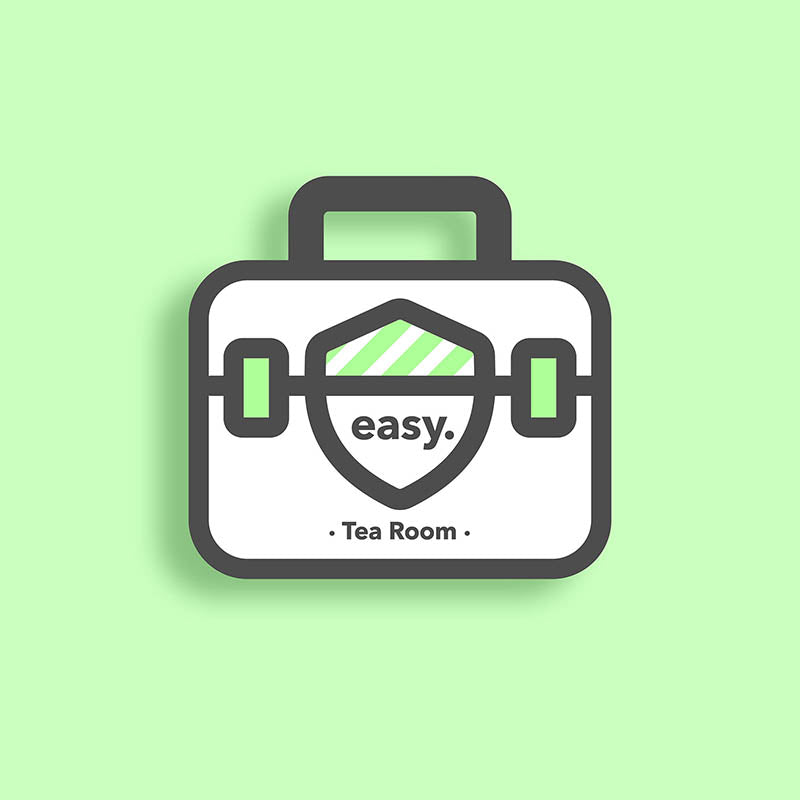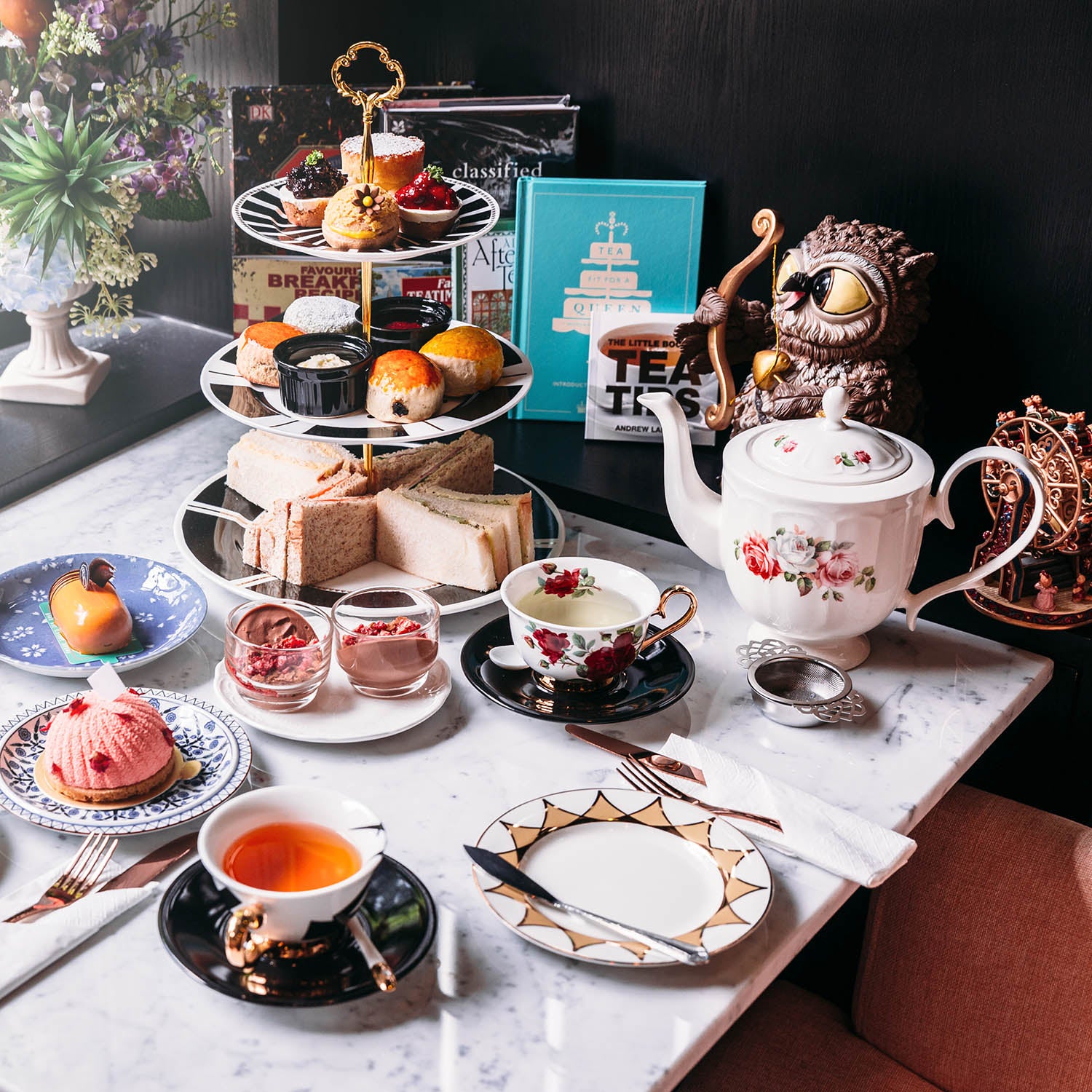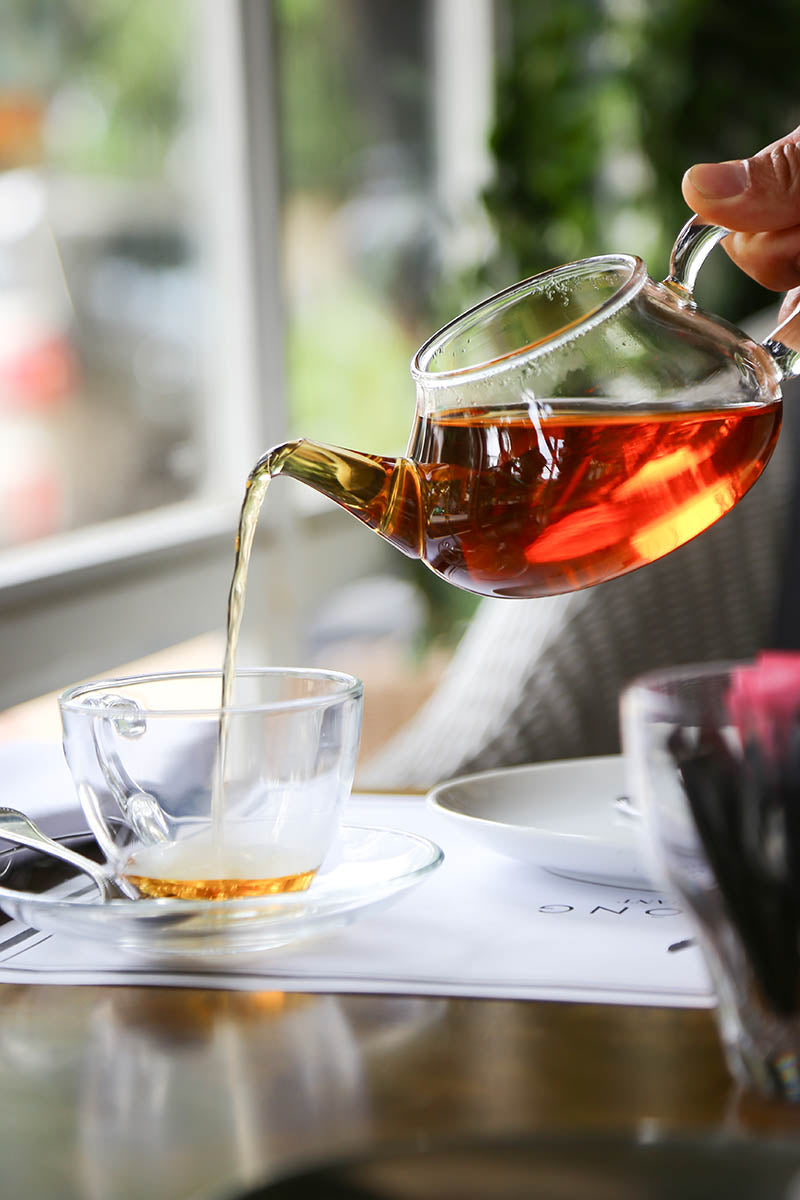
Tea Room Health and Safety Templates & Guidance
Pre-filled, editable health and safety templates for tea rooms and tea shops — including risk assessments, policies, COSHH documents, fire safety templates, and more to keep your business safe, professional, and compliant.

Keep your Tea Room business safe and compliant with our easy-to-use health and safety templates.
Simplify health and safety management in your tea room or specialist tea shop with our editable templates, created specifically for the food and drink service industry. These practical documents help tea room owners stay compliant and protect staff, customers, and contractors from common hospitality risks.
Many templates come pre-filled with detailed, industry-relevant content — from tea room risk assessments and fire safety templates to health and safety policies and accident reports — making completion quick, accurate, and stress-free. With our ready-to-use tools, you can focus on serving your customers and growing your business while maintaining the highest standards of safety and compliance.

Brewing Up Compliance: Why Tea Room Health and Safety Matters
The charm and comfort of a tea room may capture attention, but behind the teapots and tiered cake stands lies something just as important: a robust approach to health and safety. From safeguarding staff to meeting compliance requirements, a tea room’s dedication to safety is what keeps the business running smoothly. This is why health and safety is non-negotiable in the tea room and café industry.
Staff and Customer Safety
Tea rooms are busy environments filled with hot drinks, sharp utensils, and electrical equipment. The wellbeing of employees is essential not only to prevent accidents but also to build confidence and maintain productivity. At the same time, customer safety must remain a top priority, from maintaining spotless food preparation areas to managing allergens and keeping dining spaces free from hazards. A strong safety culture ensures both staff and guests are protected while enhancing the quality of service.
Compliance Made Simple
Health and safety laws are not optional; they are binding obligations. Non-compliance can lead to severe consequences such as fines, enforcement action, or even business closure. For tea rooms and cafés, tools such as tea shop risk assessments, fire safety checklists, and health and safety policies are critical in demonstrating compliance and managing risks effectively. Keeping documentation accurate and up to date not only satisfies legal requirements but also provides peace of mind for owners and managers.
Protecting Your Reputation
In today’s digital world, one incident can escalate quickly and damage a business’s reputation. News of food hygiene failings, unsafe practices, or customer accidents can spread instantly through online reviews and social media. A commitment to strong health and safety practices protects your brand from negative publicity and builds trust with your customers, encouraging repeat visits and long-term loyalty.
Proactive Safety Tools
Effective safety management is about prevention, not reaction. Regular staff training, clear signage, and up-to-date risk assessments provide the foundations for safe daily operations. Routine inspections and a culture of accountability ensure hazards are identified and addressed before they become serious issues. To make this easier, we’ve created ready-to-use compliance documents designed specifically for tea rooms and cafés. These tools help you maintain high standards of safety while focusing on creating a welcoming and memorable experience for every guest.
Top 3 Health and Safety Hazards in Tea Rooms:
-

Fire Safety Risks
View ProductsFire is a serious hazard in tea rooms, with risks arising from kitchen equipment such as hot water boilers, toasters, and stove tops, as well as faulty electrics. A fire can cause serious injury, property damage, or even closure of the business. To mitigate this, tea rooms must carry out a fire risk assessment, maintain extinguishers and fire blankets, train staff in evacuation procedures, and ensure escape routes are always clear.
-

Slips, Trips, and Falls
View ProductsSpilt drinks, greasy floors, or cluttered walkways make slips, trips, and falls a constant risk for both staff and customers. These accidents can lead to burns, fractures, sprains, or head injuries, harming individuals and damaging a business’s reputation. Mitigation includes regular floor cleaning, clear signage for wet areas, good housekeeping, and slip-resistant mats in high-risk areas.
-

Hot Food and Drink Burns
View ProductsServing boiling hot tea, and food straight from the kitchen exposes staff and customers to scalds and burns. Young children are particularly vulnerable in tea room settings. Risks can be controlled by training staff in safe handling, serving drinks at manageable temperatures, avoiding overfilled cups, and using insulated or lidded containers where possible.

Why pay expensive consultant fees when you can manage health and safety yourself?
Improve your compliance while saving time and money by creating health and safety documents, customised to your business, yourself. Our health and safety range for tea shops and tea rooms covers a suite of essential templates including health and safety policies, risk assessments, COSHH forms, fire safety documents, health and safety guidance, safety posters and more.
Benefits of managing health and safety yourself...
-

Improve safety
Health and safety at work is about preventing accidents, incidents and ill-health by assessing the work environment, the activities within it, and taking appropriate action.
-

Ensure compliance
Our ready to use templates, many of which are pre-filled, will enable you to quickly increase your compliance to health and safety laws and regulations.
-

Save money
With health and safety consultants often charging upwards of £400 per day, there is a better way. Take control and save yourself time and money.

A Storm in a Teacup? Overcoming Tea Room Compliance Challenges
In the day-to-day running of a tea room or tea shop, time and financial resources are often stretched thin. Balancing operational demands — from stock management and customer service to maintaining food quality — alongside the essential task of health and safety compliance can feel like a constant juggle.
Many small to medium-sized tea room owners may feel overwhelmed or underprepared when it comes to dedicating enough time and money to fully implementing and maintaining safety measures. The pressure to generate revenue and keep the business thriving can sometimes push compliance into the background, creating risks that could have serious consequences over time.
At easyhealthandsafety, we aim to take the friction out of compliance for tea rooms, cafés, and tea shops by providing products and guidance that are straightforward, practical, and ready to use.
Frequently Asked Questions
Tea Room Health and Safety FAQs
How can I create a risk assessment for my tea room business?
The easiest way to create a risk assessment for your tea room is to use a pre-filled, editable template designed specifically for the industry.
To create a risk assessment, start by identifying all potential hazards in your tea room — such as hot equipment, food preparation areas, slips, trips, fire hazards, and exposure to cleaning chemicals. Next, determine who could be harmed (for example, staff, customers, or contractors) and how, then decide what control measures are needed to reduce those risks. Once completed, review and update your assessment regularly, particularly when anything in your business changes.
Our editable Tea Room Risk Assessment Template is pre-filled with detailed, tea room–specific content to make this process straightforward and compliant. It’s quick to complete, easy to customise, and ensures all major hazards are properly identified and controlled.
If you’d prefer an all-in-one solution, our Tea Room Health and Safety Template Bundle provides over 60 essential health and safety documents — including the tea room risk assessment, fire safety templates, COSHH forms, policies, and staff safety guidance — all in one professionally prepared package to help your business stay compliant and safe.
Do tea rooms need to complete a risk assessment?
Yes — all tea rooms and tea shops must complete a suitable and sufficient risk assessment.
Under the Health and Safety at Work etc. Act 1974 and the Management of Health and Safety at Work Regulations 1999, employers are legally required to assess and manage risks to employees, customers, and contractors. For tea rooms, this means identifying hazards such as fire, burns from hot drinks, slips and trips, manual handling injuries, allergen exposure, and cleaning chemical use. A written Tea Room Risk Assessment is essential for demonstrating compliance, preventing accidents, and protecting your team and customers.
Even if your business has fewer than five employees, carrying out a risk assessment is strongly recommended as best practice — it helps reduce liability and demonstrates due diligence during inspections. Our Tea Room Risk Assessment Template is pre-filled with relevant content, providing a quick and compliant way to complete your assessment, saving time while ensuring all major risks are properly managed.
What are the most common causes of accidents in tea rooms and tea shops?
The most common causes of accidents in tea rooms and tea shops include slips, trips and falls, burns from hot drinks and kitchen equipment, manual handling injuries, and cuts from sharp tools.
In busy tea room environments, hazards can arise quickly. Wet or cluttered floors cause slips and trips, while handling hot drinks, kettles, or coffee machines can lead to burns and scalds. Staff may also suffer strains or back injuries from lifting boxes, moving tables, or restocking supplies. Cuts and lacerations are another frequent cause of injury, often linked to knives, slicers, or broken glass. Poor housekeeping and inadequate staff training are common underlying factors.
All accidents, incidents, and near-misses should be reported, recorded, and investigated promptly to identify the root cause and prevent recurrence. Keeping clear and accurate records is vital for legal compliance and demonstrating due diligence during inspections. Our Accident Report Form provides a simple, professional way to document incidents and ensure all necessary follow-up actions are taken.
Carrying out regular risk assessments and staff training is essential to reduce these risks. Our editable Tea Room Risk Assessment Template comes pre-filled with industry-relevant content, helping you identify and control common hazards specific to tea rooms, while our Tea Room Health and Safety Template Bundle provides a suite of over 60 essential health and safety documents — including an industry-specific risk assessment, fire safety templates, COSHH assessment, accident reporting template, and more — to help prevent accidents, injuries and ensure compliance across your business.
What are the penalties for non-compliance with health and safety in tea rooms?
Poor health and safety compliance in tea rooms and tea shops can lead to serious consequences, including fines, enforcement notices, or even closure.
The Health and Safety Executive (HSE) and local authorities can issue fines, improvement notices, or shut down tea rooms that fail to meet legal requirements. Non-compliance also risks serious accidents and reputational damage. By using ready-to-edit tools such as our Tea Room Risk Assessment, Health and Safety Policy, and Fire Safety Template Bundle, owners can avoid penalties and run their businesses with confidence.
For an all-in-one solution, our Tea Room Health and Safety Template Bundle provides over 60 essential health and safety documents — including the tea room risk assessment, fire safety templates, COSHH forms, policies, and staff safety guidance — all in one professionally prepared package to help your business stay safe and compliant.
What health and safety risk assessments do tea rooms need?
Tea rooms and tea shops must carry out risk assessments for all significant hazards that could affect staff, customers, or contractors.
Under the Management of Health and Safety at Work Regulations 1999, every employer has a duty to assess and control risks in their workplace. For tea rooms, this means identifying hazards such as fire, burns from hot liquids or equipment, slips and trips, food hygiene issues, manual handling, cleaning chemicals, workplace aggression, and more.
You also must complete a fire risk assessment and COSHH assessments (Control of Substances Hazardous to Health) to manage the risks from fire and hazardous cleaning products safely.
Our editable Tea Room Risk Assessment Template is specifically designed for tea rooms and tea shops. It comes pre-filled with relevant, industry-specific content covering the main hazards and control measures, and is easily adaptable to your tea room business, saving you time and ensuring your assessment is legally compliant and easy to update.
If you’re looking for a complete compliance solution, our Tea Room Health and Safety Template Bundle includes everything you need to manage health and safety across your business — including your risk assessment, fire safety templates, COSHH forms, policies, staff safety guidance, and more — all in one professional, ready-to-use package.
Do tea rooms need a fire risk assessment?
Yes, all tea rooms and tea shops must conduct a fire risk assessment.
The Regulatory Reform (Fire Safety) Order 2005 requires all non-domestic premises to have a fire risk assessment. In tea rooms, hazards include hot equipment and electrical appliances. Your assessment should cover ignition sources, escape routes, and fire-fighting equipment.
Our Fire Risk Assessment Template and Essential Fire Safety Template Bundle guide you through the process of conducting your fire risk assessment, making it simple to stay compliant and protect staff, customers, and property.
What should be included in a tea room health and safety policy?
A Tea Room Health and Safety Policy should clearly outline how your business manages health, safety, and welfare for staff, customers, and contractors.
Under the Health and Safety at Work etc. Act 1974, businesses with five or more employees must have a written policy explaining their approach to managing health and safety. For tea rooms and tea shops, this document should include:
- A statement of intent, confirming your commitment to maintaining a safe workplace.
- Defined roles and responsibilities, setting out who is responsible for implementing safety procedures.
- Details of risk assessments, fire safety, COSHH, training, and accident reporting arrangements.
- Procedures for slips and trips prevention, manual handling, food hygiene, and customer safety.
- Information on how you will review and monitor health and safety performance regularly.
Our Health and Safety Policy Template is a simplified, editable document that can be easily tailored to your tea room operations. It includes pre-filled examples to make completing your policy quick and straightforward, saving time while ensuring full compliance with legal requirements.
For a complete solution, our Tea Room Health and Safety Template Bundle includes this policy template along with your risk assessment, fire safety documents, COSHH assessments, staff safety guidance, and more — giving you everything you need to manage compliance across your business confidently and efficiently.
How can tea rooms manage allergen safety and labelling?
Clear allergen management is a legal requirement under food safety law.
Tea rooms must comply with the Food Information Regulations 2014 and Natasha’s Law by clearly labelling allergens and providing accurate ingredient information. Cross-contact in preparation areas is also a major risk. Training staff, keeping ingredient lists updated, and maintaining good kitchen hygiene are vital.
Our Tea Room Risk Assessment Template and Tea Room Health and Safety Template Bundle both include pre-filled allergen management measures to help tea rooms ensure compliance.
What are the main food hygiene responsibilities for tea rooms?
Tea rooms must follow strict food safety and hygiene standards.
Tea room owners must comply with the Food Safety Act 1990 and maintain high standards of hygiene in line with HACCP principles. This includes food storage, preparation, cleaning, and staff training. Failing to follow these rules risks fines, closure, or reputational damage.
Our Tea Room Risk Assessment Template and COSHH Risk Assessments provide practical guidance for safe food handling and chemical use in kitchens.
Do tea rooms need COSHH risk assessments?
Yes — the COSHH Regulations apply to any tea room using cleaning products or hazardous substances. You should complete COSHH risk assessments for each substance to manage exposure risks and stay compliant.
The Control of Substances Hazardous to Health (COSHH) Regulations require businesses to assess risks from hazardous substances. In tea rooms, this usually means cleaning products, sanitisers, and dishwashing chemicals. A COSHH Risk Assessment helps ensure chemicals are stored safely, staff are trained, and PPE is used correctly.
Our pre-filled COSHH Risk Assessment Templates, available for a range of commonly used hazardous substances, make compliance straightforward. There is also a Blank COSHH Risk Assessment Template available for substances specific to your tea room business that we have not yet covered.
How often should risk assessments in tea rooms be reviewed?
Risk assessments in your tea room should be reviewed regularly (usually annually) and updated whenever there are significant changes to the premises, equipment, working processes, or staff, ensuring your business stays compliant and safe.
Using our editable Tea Room Risk Assessment Template that comes pre-filled with content on hazards relevant to tea room businesses, makes it easy to review, update, and reissue assessments quickly without starting from scratch.







